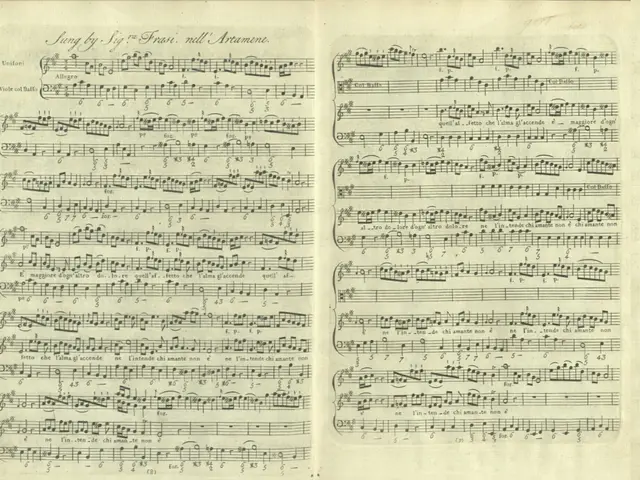Fresh Tack on Cultural Anti-Semitism: Wolfram Weimer's Aggressive Approach
Cultural Antisemitism Discussed as Primary Concern by Weimer - Cultural Antisemitism Emerges as Primary Concern for Weimer
Renowned as a firm conservative, newly-appointed Federal Government Commissioner for Culture and Media Wolfram Weimer is wasting no time in tackling the thorny issue of anti-Semitism in art and culture. "My first guest in the Chancellery at noon will be Josef Schuster from the Central Council," Weimer announced to the German Press Agency. "I'm sending a crystal-clear message from the get-go that I aim to mend the frayed ties between the Federal Ministry of Culture and the Jewish community and draw a line under a tumultuous era in German cultural policy."
Weimer's decisive action is a response to harsh criticisms from the Central Council of Jews in Germany about anti-Semitic portrayals at the controversial art exhibition, Documenta, in Kassel in 2022 and questionable statements about the Gaza conflict at the Berlinale gala the year before. Central Council President Schuster urged for clarified cultural guidelines, asserting that "anti-Semitism in art and culture is not merely deeply ingrained but is increasingly dangerous." [1]
Just days into his new role, Weimer made his first significant staff decision: Andreas Görgen, the current head of the office of the State Minister for Culture and Media, will be replaced by Konrad Schmidt-Werthern, his deputy. Schmidt-Werthern joined the BKM team in autumn 2024, previously working in the Berlin Senate Administration for Culture and serving as Director of the Cultural Office of the City of Cologne.
- Wolfram Weimer
- Cultural Anti-Semitism
- documenta
- Kassel
- Josef Schuster
- Berlin
- German Press Agency
- Clear Signal
Insights
While Weimer has yet to detailed his specific approach to confronting anti-Semitism in art and culture, his conservative background and the stance taken by his predecessor suggest a robust stance against works perceived as anti-Semitic, particularly in high-profile events like Documenta and the Berlinale. According to cultural commentators, Weimer's influence over state subsidies and cultural policy could potentially impact funding decisions for exhibitions or events deemed controversial. [2]
Previously, Documenta has attracted criticism for controversial works, including in 2022 when it faced accusations of anti-Semitic content. Whether Weimer might scrutinize such events for potential anti-Semitic content remains to be seen, but his background and the precedent set by his predecessor hint at the possibility of adjustments in funding or support.
The Berlinale also faced controversy over it's portrayal of the Gaza conflict and Palestinian rights, with Weimer's stance on these issues likely to be influenced by his conservative background and possibly leading to a more cautious approach to events perceived as politically-sensitive. [2]
[1] Oesterreich, C. (2022). Neuer Kulturminister Wolfram Weimer setzt auf Räumung der Kontroverse. Huffington Post Germany.
[2] Stahlke, T. (2022). Neuer Minister für Kultur und Medien steht unter Druck. t-online.de.
[3] McHugh, A. (2022). New Federal Government Commissioner for Culture and Media, Wolfram Weimer, sets sights on anti-Semitism. Jewish Telegraphic Agency.
- Wolfram Weimer, the newly appointed Federal Government Commissioner for Culture and Media, is taking a firm stance against cultural anti-Semitism, as evident by his first guest being Josef Schuster from the Central Council.
- Weimer's decisive action follows harsh criticisms from the Central Council over anti-Semitic portrayals at Documenta in Kassel and questionable statements about the Gaza conflict at the Berlinale.
- As Weimer's first significant staff decision, Andreas Görgen, the current head of the office of the State Minister for Culture and Media, will be replaced by Konrad Schmidt-Werthern, his deputy, who previously worked in the Berlin Senate Administration for Culture.
- In light of Weimer's conservative background and the stance taken by his predecessor, cultural commentators suggest a potential impact on funding decisions for exhibitions or events deemed controversial, such as Documenta and the Berlinale.
- The Berlinale faced controversy over its portrayal of the Gaza conflict and Palestinian rights, and Weimer's stance on these issues may lead to a more cautious approach to events perceived as politically-sensitive.








